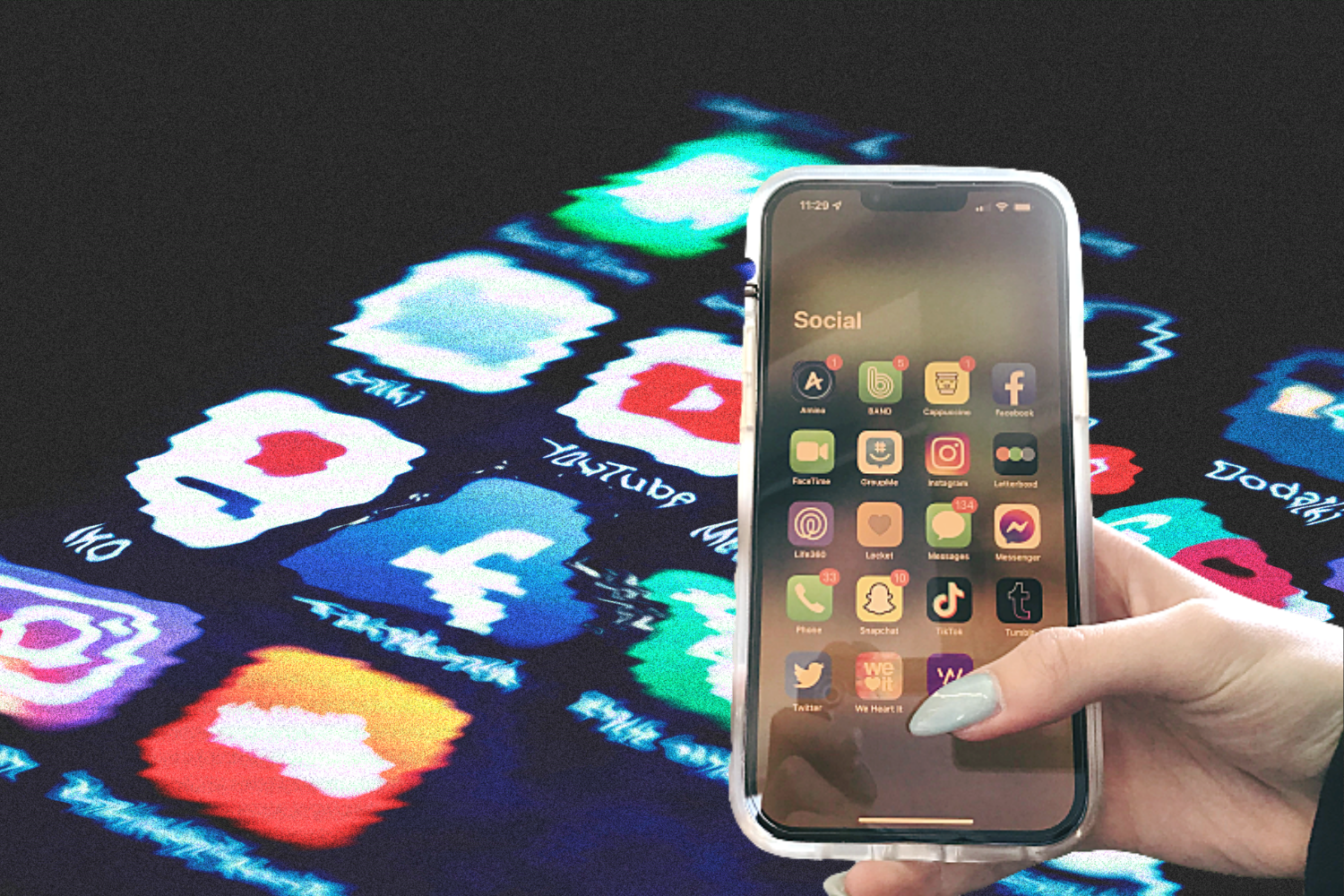Is it possible to give up social media?
April 6, 2022
In 2022, modern technology and social media have evolved tremendously and secured their place as a significant aspect of society. Yet, all who use social media are just as aware of the cautions and warnings produced by scientists and medical professionals advising against its pitfalls. In the contemporary world, with social media holding such an overwhelming presence in every facet of society, a social media user or even an addict cannot help but worry that cutting down social media usage is nearly impossible.
It is no secret that social media carries deep roots in society. Every day, individuals spend a generous portion of their days online. Unfortunately, this growing trend has come at a cost. Adolescents who spend over three hours on social media per day are at higher risk for mental health problems. Because there is no lack of professionals speaking against the increased use of smartphones, many individuals have recognized the concerning effects of social media, with 38% of adults viewing social media as harmful. Yet, many people tend to be wary and hesitant to take the necessary action to limit their time spent on social media and the internet. This avoidance raises an important question: is it even possible to shy away from social media today?
AHN freshman, Mariana Guzman (’25), believes it is, but with difficulty. “I think it would be hard to. I communicate with a lot of my friends on social media, like on Snapchat. If it was easy to quit using it, I would, but I’d be worried about feeling left out on a lot of things,” says Guzman.
Although the majority are more likely to be on social media for extended periods of the day, there is a fair presentation of individuals who have come forward and shared their experiences attempting to cut ties with social media. These individuals often reported numerous positive effects on their day; a feeling of having more time in their days, new picked-up hobbies, a new sense of mindfulness, and more. Social media, by design, is intended to grab public attention, keep them interested, and maintain their consistent engagement and connection. Thus, it is no surprise that when people cut off this addicting aspect of their lives, there is a strong sense of increased fulfillment through more presently engaging activities and hobbies. Author Felicia C. Sullivan decided to take the step to cut off social media use, detailing her experience online for others to read.
“My hobbies are tactile and multi-sensory. I walk, hike, run, write longhand, write letters, read books, participate in book exchanges, play the clarinet, and cook,” says Sullivan. Although these individuals tend to be the minority, they prove what is possible for every person today.
Sometimes you have to put your phone down and disconnect for your mental health.
— dev (@devonleighs) April 1, 2022
As convincing as these newly found perspectives on life seem, many feel a great barrier between distancing from social media and themselves. It is a common joke and suspicion that individuals not found on social media and the internet are shady or unusual in a negative way, which can divert initial interest in taking a step back from the online world. However, the most significant barrier to reducing social media use is fear. Individuals often feel fear at the idea of leaving social media behind. Fear of missing out on some grand event or party, fear of dependence on social media to live, or fear of facing life without mindless distractions. Fear is the leading agitator of avoiding social media’s harmful effects for many.
Yet, this fear is often not rooted in reality and is greatly influenced and encouraged by the internet itself. When its users feel trapped in the endless cycle of social media scrolling, the platform has been successful – it has grabbed the attention of its audience. Additionally, many young people and individuals have grown up, at least partially, in a world dominated by the internet and social media. For these individuals, these platforms are just another facet of their lives. Fear is an understandable and completely natural reaction to the idea of having that “backbone” ripped away, or fearing a person who can seemingly live without it. To step back from social media is to acknowledge those fears and face what value social media should hold. There is no unspoken rule that states every person must stay involved in social media, contrary to the narrative of many online platforms. In doing this, an individual acts on what is best for their happiness.
Although the change may be uncomfortable at first, adapting to it shortly follows, and soon it is likely a person’s life can start to morph for the better. It is certainly possible to make this change, however scary or intimidating it may seem, and it is a risk all too rare. The more individuals who are willing to take this risk, to go against what messages and pressures they may feel all around them, the more normalized and less scary the decision and change can be for others. And the chance is beyond worth it to try.
AHN Junior, Rosie Mele (‘23), hopes more individuals feel comfortable deviating from the common use of social media when it is actively harming their wellbeing.
“I think high amounts of screen time can negatively impact our mental health. In the future, I hope I can keep forming good habits that stop me from staying on my phone for long periods. I also really do hope social media becomes seen as a choice, and encourages everyone that it is possible to move away from it,” says Mele.


pip • Apr 7, 2022 at 1:32 pm
this was one of the most amazing things I have ever read